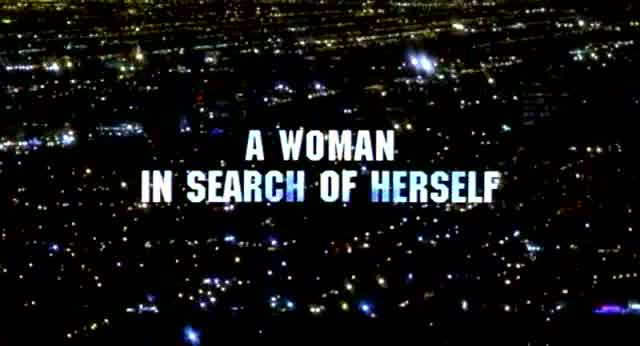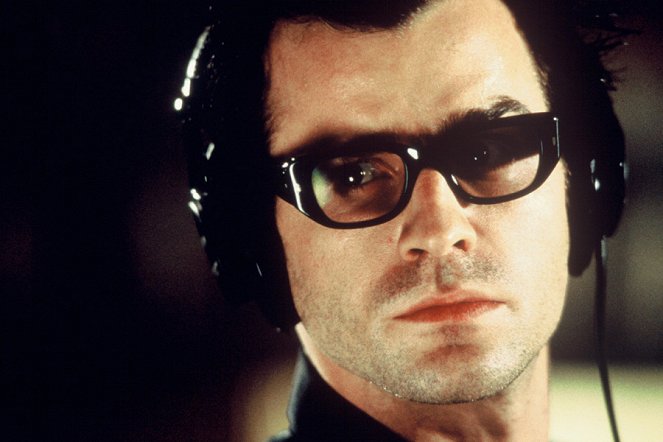Directed by:
David LynchScreenplay:
David LynchCinematography:
Peter DemingComposer:
Angelo BadalamentiCast:
Naomi Watts, Laura Harring, Ann Miller, Dan Hedaya, Justin Theroux, Brent Briscoe, Robert Forster, Katharine Towne, Lee Grant, Scott Coffey, Billy Ray Cyrus (more)VOD (3)
Plots(1)
Naomi Watts (Birdman, Funny Games) gives a career-making performance as aspiring actress Betty, who after arriving in Hollywood, befriends an amnesiac woman (Laura Harring) and tries to help her recover her memory. The film establishes these characters but then proceeds to subvert any certainty about them, instead offering a swirling atmosphere of increasing surrealism. (Independent Cinema Office)
(more)Videos (2)
Reviews (14)
Lynch's Mulholland Drive is a great lesson in perception. As well as a great lesson from the power of the narrator - power over the fictional world, its inhabitants, but also over those who try to decode it. In the first part of the film, the director entices us into the trap of traditional narrative perception, into the straitjacket of the unity of time, action and characters. He unfolds before the viewer a seemingly unambiguous thriller plot about a woman who lost her memory during a car accident and, with the help of the beginning Hollywood actress Betty, tries to look for clues about what happened to her. She finds three material constants that will soon remain the only constants in the chaotic vortex of dream and reality – house number 17, the blue key and $ 25,000. The ensuing earthquake, which destroys the plot that has been carefully constructed and reconstructed by the viewer, is typical Lynch. The characters change names, and the plot and time become relative... And the key remains, which does not unlock anything for the viewer, house number 17, whose inhabitant is known and yet unknown to us, and $ 25,000, the determination of which we suspect, but we do not receive anything to support this theory of ours. What is real and what is a feverish dream? How do the strange and disturbing episodes that Lynch seems to associatively insert into the flow of narration fit into the plot of the film? What, in fact, is Mulholland Drive? I do not know the answer. It's a classic mental time bomb that confuses and annoys you, but you don't really think about anything else. Lynch created a disturbing labyrinth in which he shatters the mirrors of the classical narrative structure, in which the hypocritical and empty world of Hollywood (a masterful scene with the revival of meaningless and empty text on casting) is reflected, in which the viewer is necessarily lost if he or she perceives in a learned manner - materially, causally. A labyrinth with a brilliant and almost schizophrenic performance by Naomi Watts... Lynch is a great magician of dreams, hints and riddles. A bandleader who creates the illusion of instruments to then reveal that everything is played only from the tape - it’s fake, artificial... confusing. I am not going to give it any stars until I see the film a second time, maybe a third time... I confess without torture that I don't really know if I've actually watched a film. Formally, undoubtedly masterful (sound, editing, camera, music and the overall atmosphere resulting therefrom is freezing, dark, enchanting...), but in terms of its interior, I am still too far from its core to make any judgments.
()
I can't help it, but I've probably seen too many Lynch films in too short a time, which leads to me not liking Mulholland Drive as much as I probably could. But when I watch this film, I see all the previous works Lynch has done. There's something from Twin Peaks, something from Lost Highway, something from Blue Velvet, and also a certain intensity from Wild at Heart. It's great that Lynch maintains his style, that it's still him, but his mind games are more of a torment for me. The craziest part for me is that people are trying to analyze the film as if there's a clear explanation for what we're watching. To Lynch's films, especially the recent ones excluding The Straight Story, simply no key exists. It's not about understanding what the director intended, but simply taking something from the film, finding your own path, without expecting that your interpretation is the only correct one. Lynch is brilliant at this, but he's also repetitive.
()
This is either a masterpiece or a bad trip, but an excellent and unusual experience in any case. Also, since my first encounter with Lynch, I have learnt how to watch his films (to accept that most of the action doesn’t take place in the real world), so this time I’m convinced that I know what this one is roughly about, and it actually begins to make sense in the last half hour. Basically, it draws attention to feelings and conditions that are common in a person’s daily life, even if they are not always aware of them: desire, disappointment, pain, escape, revenge. PS: Or it’s something completely different.
()
I didn't, and probably never will, fully understand. After the completely direct and purposefully comprehensible Elephant Man, I saw David Lynch's second feature film, which completely breaks boundaries in terms of the level of comprehensibility. The first two-thirds were somewhat interpretable, but the last twenty minutes completely reversed all my thought processes, and it was only at the last word "Silencio!" I said: "Oh shit!". I've never been so confused and conflicted, and in fact this may have been one of the director's intentions. Why explain everything at the end, when the viewer at least has something to think about. All in all, a very weighty film that, along with the premise, excels in the acting and the wonderfully gloomy and mysterious music.
()
A psycho(il)logical and strange picture that is hard to grasp... So, in fact, the type of classic that we are used to getting from Lynch. If it had ended twenty minutes earlier, this would have been maybe the most graspable Lynch movie ever, but at that moment is breaks into the most bizarre movie ever. Lynch on his best film-making (not series-making!) form.
()



Ads